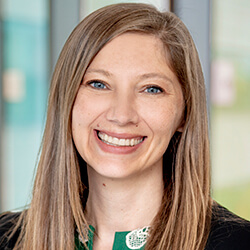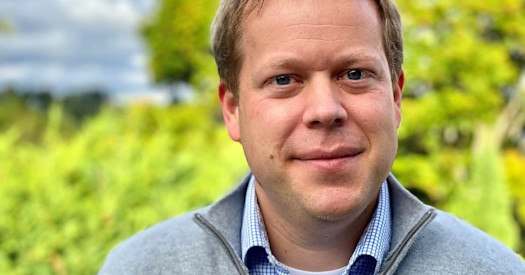 ‘Clear opportunities exist to add value to care of critically ill newborns’ -- Tara Lynn Wenger, MD PhD
‘Clear opportunities exist to add value to care of critically ill newborns’ -- Tara Lynn Wenger, MD PhD
Initial results of the BBI-sponsored SeqFirst Project using whole genome sequencing have demonstrated that “clear opportunities exist to center equity for providing a precise genetic diagnosis that adds value to the care of critically ill newborns.”
Those results were presented recently by Dr. Tara Lynn Wenger, an associate professor in the Division of Genetic Medicine at Seattle Children’s Hospital, at the annual meeting of the American College of Medical Genomics and Genetics.
“Care for families with rare diseases is often empirical, imprecise, and modestly effective, leaving substantial room for improvement and innovation,” Wenger said. “The ‘promise’ of more precise, and by inference, better care, begins with an accurate genetic diagnosis. Yet, many if not most children with rare diseases are not offered, much less, receive genetic testing.”
Wenger noted that from January to November of 2021 electronic medical records for every newborn admitted to Seattle Children’s neonatal intensive care unit were reviewed by clinical geneticists for eligibility of whole genome sequencing. Of those 336 children, 184 families with eligible children were contacted and, of those, 100 families agreed to participate.
Analyses are complete for all but three of those 100 children. Results were fully explanatory in 30 families (31 percent); potentially explanatory in 16 families (17 percent), partially explanatory in 5 families (5 percent), and nondiagnostic in 46 families (48%). In addition, of the 50 (52 percent) newborns with diagnostic whole genome sequencing, 35 (70 percent) had genetics consultations ordered. There was no documented clinical suspicion of a genetic condition in 30 percent of newborns with diagnostic whole genome sequencing.
She also explained that results from the sequencing resulted in changes in the care of 14 children (or 93 percent), such as specialty referrals, surgery or other invasive procedures, or changes in medication.
“Significantly, many of the children were non-White and in whom a genetic condition had not been suspected,” Wenger said. “We used interpreters for Spanish, Arabic and other languages for 13 families, of whom eight enrolled in the study.”
Families incur no fees; costs and sequencing procedures are covered by Illumina, Inc. and GeneDx, Inc., a wholly owned subsidiary of BioReference Laboratories, Inc.,
“Given the apparent benefit of increasing access to whole genome sequencing in critically ill newborns, use of less labor- and time-intensive approaches and technologies to obtain informed consent and return results could increase efficiency, improve scalability and potentially reduce costs and further improve access to sequencing,” Wenger said.
For more information about the SeqFirst study, visit: https://www.seqfirst.org/.


